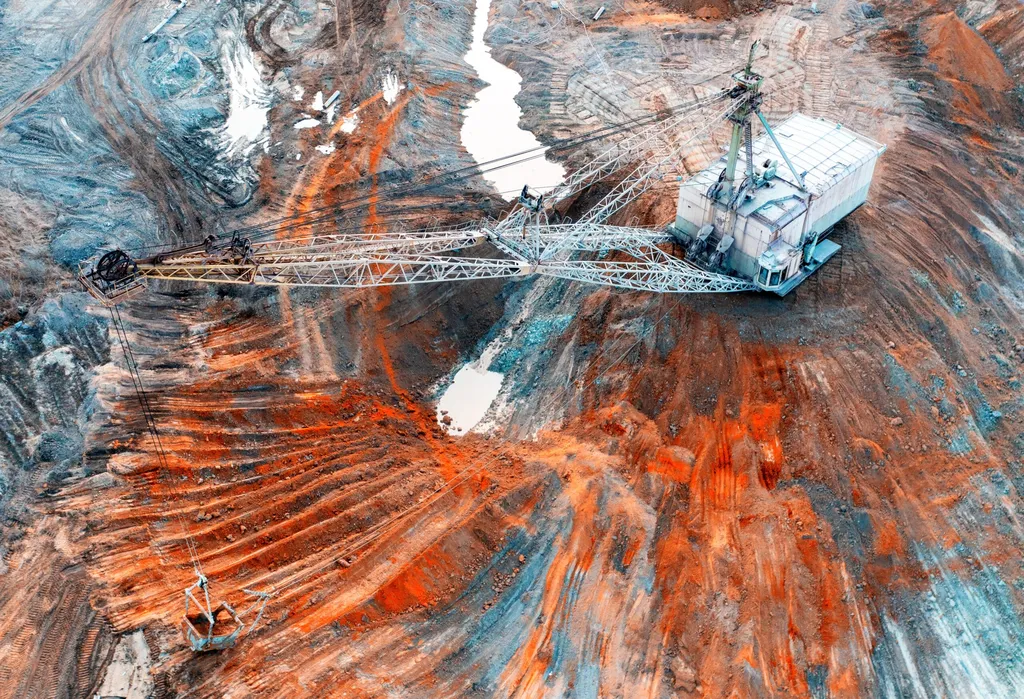Europe could soon turn its gaze towards the stars for its mining needs, as the European Commission’s September 2025 Foresight Report suggests that competition for critical raw materials might drive the bloc to explore space mining, with the Moon as a starting point. This early-stage project has caught the attention of both public institutions and private companies worldwide, sparking a conversation about the future of space mining, its technology, and its ethical and legal boundaries.
Space mining, a broad term describing the extraction of key metals, water, and gases from celestial bodies, primarily targets the Moon and asteroids. These ancient remnants of our solar system’s formation, dating back 4.6 billion years, hold promise for both sustaining space exploration and meeting Earth’s demand for critical raw materials.
Lunar mining is often discussed in terms of in-situ resource utilization, with water being the most valuable resource. The Moon’s water could support life and serve as rocket fuel, reducing the costly endeavor of lifting water from Earth. “Water is a very useful material, but it’s quite a heavy one,” explained Ian Crawford, a professor of planetary science at the University of London. “Lifting many kilos of water from the Earth to the Moon would be an expensive thing to do, so much better if the Moon has its own source of water.”
On the other hand, asteroid mining is associated with ex-situ exploitation, where materials are mined in space and brought back to Earth. Some asteroids may contain nickel, cobalt, and other critical raw materials valuable on Earth. “There are companies that argue that if we were to mine these so-called platinum group elements from iron asteroids, this would be worth a lot,” Crawford added.
However, space mining faces significant challenges, both in developing the necessary technology and in determining whether the investment is worth the cost. The debate surrounding the ethics of space mining is also open, with concerns about its potential impact on local communities and environments, much like terrestrial mining.
Pierfrancesco Biasetti, a researcher and lecturer at the Summer School in Space Ethics at the University of Padua in Italy, noted that while space mining could make society wealthier and more efficient, the details matter. “As always in ethics, the devil is in the details,” he said, emphasizing the need to analyze each case individually based on the type of resource, the mining method, and the beneficiaries.
Erik Persson, an associate professor of philosophy at Lund University in Sweden, added that space mining might not necessarily reduce mining on Earth. “It could mean a boom for the Earth’s economy, but it would probably also mean an increased gap between those who have [access to space] and those who have not [access to space],” he said.
Legally, space mining is also contentious. The Outer Space Treaty of 1967 prohibits nations from claiming sovereignty over celestial bodies, effectively banning ownership in space. However, some countries, including the United States, Luxembourg, and Japan, have passed laws allowing their private companies to extract resources in outer space. These national laws “mostly include a clause that says this can be done within the legal responsibilities that the country adheres to from the Outer Space Treaty,” said Jill Stuart, a space law and politics expert from the London School of Economics. “So it’s not really clear how exactly that’s going to work.”
Experts agree that technology, ethics, and law are not yet ready for space mining operations. However, Crawford sees this as an advantage: “There is a window of opportunity to try and get our act together, and develop an international regime that can deal with the utilisation of space resources according to internationally agreed principles.”
As Europe considers space mining, the sector must grapple with these challenges and debates. The development of space mining could reshape the mining industry, driving innovation and forcing a reevaluation of ethical and legal frameworks. It could also intensify competition for resources and exacerbate inequalities. The path forward is uncertain, but the conversation has begun, and the stakes are high.

